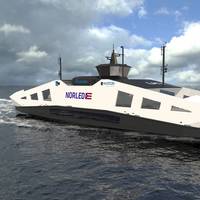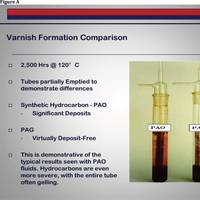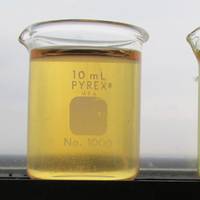Water Treatment: Inside WETT Technology for Oily and Black Water Treatment on Ships

Attracted by the environmental mission of Terragon Environmental Technologies, Dr. Ramona Pristavita, Terragon’s Vice President of Engineering, discusses the operational advances and advantages that Wastewater Electrochemical Treatment Technology (WETT) offers to shipowners.Handling a variety of shipboard waste water efficiently, effectively, is a central tenant to ship operations.Operating in the harsh saltwater environment, with a broad spectrum of ship movements and vibrations…
The Path to Zero: First Wave of Ships Explore Green Hydrogen

While there is no consensus on what will be the maritime 'fuel of the future', developers across the world are for the first time testing the use of hydrogen to power ships as the maritime industry races to find technologies to cut emissions and confidence grows the fuel is safe to use commercially.To reach goals for the shipping industry set by the United Nations, industry leaders say the first net-zero ships must enter the global fleet by 2030. Ships powered by green hydrogen…
Finding the Ideal Biodegradable Marine Lubricant

In December 2013, the EPA through its Vessel General Permit (VGP) will introduce the mandatory use of “Environmentally Acceptable Lubricants” or EALs. These products include the lubricating oils that are directly used in applications referred to as “oil to sea interfaces” where the only thing holding the oil from entering the water is a simple seal or gasket. Understanding what this all means to you is important. Bio-degradability rating of 60% or more in 28 days (the minimum criteria to also be classified as “readily biodegradable”).
Are PAGS the Answer?

Ron van Wachem, President of Coast Lubricants and Nanaimo Shipyard Group, reasons that PAGS are the best solution to meet the new VGP requirements. In December 2013, the EPA through its Vessel General Permit (VGP) will introduce the mandatory use of “Environmentally Acceptable Lubricants,” or EALs. These products include the lubricating oils that are directly used in applications referred to as “oil to sea interfaces” where the only thing holding the oil from entering the water is a simple seal or gasket. Understanding what this all means to you is important. The U.S.
Vancouver Shipyards Solves the Oily Wastewater Problem
By Rob Stephenson and Bruce Tennant, McKay Creek Tech.; and Don Hartle and George Geatros Vancouver Shipyards Co. Ltd. Vancouver Shipyards is part of the Washington Marine Group, the largest shipbuilding, ship maintenance and repair, and marine transportation company in Canada. Inherent to this scale of operation, the Washington Marine Group generates large quantities of emulsified oily wastewater. Managing the oily bilge water, ballast water, fuel/slop tanks, tank wash water from gas freeing operations, and wastewater from pressure washing machinery was becoming a big and expensive problem at Vancouver Shipyards. Both salt and fresh wastewaters are contaminated with emulsified oil and grease…
Barging Ahead
Barge operators are often accused of giving the marine fuels industry a bad name. While it is true that there are barging companies with a debatable approach to the business, they are very much in the minority. Worldwide, barge operators are working hard to improve their services and operations. In many respects, they are leading not only the bunker industry — but shipping as a whole. Nowhere is this demonstrated clearer than during barge-to-ship transfers of oil; nowhere is this expertise better demonstrated that in the U.S. Operating bunker barges in the U.S. is a fraught business. To say the very least, U.S. authorities do not like oil in their harbors, and culprits can find themselves on the sharp end of some harsh penalties if negligence is proved.






